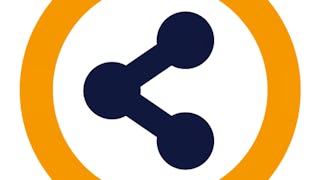In this course, you will explore how to develop and implement evidence-based methods for science communication. We’ll discuss major theories of human learning, cognitive phenomena like bias and motivated reasoning that can undermine even the best activities, and the science behind why mis/disinformation spreads so quickly. We’ll end with motivational interviewing and a discussion of how to use learning engineering to design educational activities.


The Harder Side of Science Communication
This course is part of Designing Effective Science Communication Specialization

Instructor: Melanie Peffer
1,626 already enrolled
Included with
Recommended experience
What you'll learn
Describe the field of the learning sciences.
Describe and compare different theoretical frameworks for explaining human learning.
Explain the relationship between cognitive biases and why people fall for mis/disinformation.
Describe the process of motivational interviewing and its utility in science communication.
Skills you'll gain
Details to know

Add to your LinkedIn profile
See how employees at top companies are mastering in-demand skills

Build your subject-matter expertise
- Learn new concepts from industry experts
- Gain a foundational understanding of a subject or tool
- Develop job-relevant skills with hands-on projects
- Earn a shareable career certificate

There are 4 modules in this course
In this module, you will learn about the learning sciences. You will also discuss the methods used by learning scientists to generate evidence on how people learn.
What's included
3 videos1 reading1 assignment1 plugin
In this module, you will learn about four major theoretical frames for describing human learning. This includes cognitive theories of learning, contextual theories of learning, social cognitive theories and behaviorism.
What's included
4 videos4 readings1 assignment
In this module you will explore cognitive phenomena such as epistemic cognition, cognitive biases, and motivated reasoning. You will also discuss strategies for designing science communication activities that will help mitigate the influence of bias.
What's included
4 videos6 readings1 assignment1 discussion prompt
In this module, you will learn about learning engineering. You will also have a chance to try learning engineering for yourself and either design or re-design a science communication activity using the principles from this course.
What's included
2 videos4 readings1 peer review
Earn a career certificate
Add this credential to your LinkedIn profile, resume, or CV. Share it on social media and in your performance review.
Instructor

Offered by
Explore more from Education
 Status: Preview
Status: PreviewUniversity of Colorado Boulder
 Status: Free Trial
Status: Free TrialUniversity of Colorado Boulder
 Status: Free Trial
Status: Free TrialUniversity of Colorado Boulder
 Status: Preview
Status: PreviewErasmus University Rotterdam
Why people choose Coursera for their career





Open new doors with Coursera Plus
Unlimited access to 10,000+ world-class courses, hands-on projects, and job-ready certificate programs - all included in your subscription
Advance your career with an online degree
Earn a degree from world-class universities - 100% online
Join over 3,400 global companies that choose Coursera for Business
Upskill your employees to excel in the digital economy
Frequently asked questions
To access the course materials, assignments and to earn a Certificate, you will need to purchase the Certificate experience when you enroll in a course. You can try a Free Trial instead, or apply for Financial Aid. The course may offer 'Full Course, No Certificate' instead. This option lets you see all course materials, submit required assessments, and get a final grade. This also means that you will not be able to purchase a Certificate experience.
When you enroll in the course, you get access to all of the courses in the Specialization, and you earn a certificate when you complete the work. Your electronic Certificate will be added to your Accomplishments page - from there, you can print your Certificate or add it to your LinkedIn profile.
Yes. In select learning programs, you can apply for financial aid or a scholarship if you can’t afford the enrollment fee. If fin aid or scholarship is available for your learning program selection, you’ll find a link to apply on the description page.
More questions
Financial aid available,
¹ Some assignments in this course are AI-graded. For these assignments, your data will be used in accordance with Coursera's Privacy Notice.

